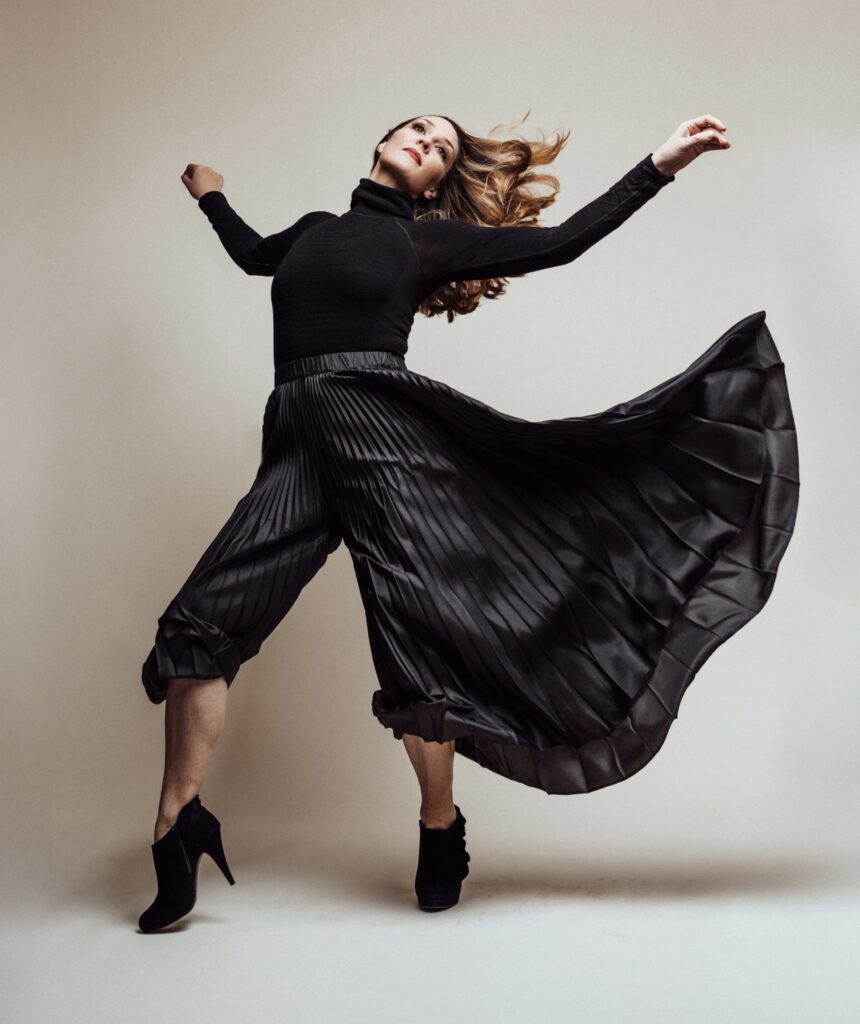As I’ve been rediscovering as I return to dance, auditioning is an inherently vulnerable act. Even the most accomplished performers will tell you they hear “no” more often than they hear “yes.” When we get a callback or book a job, we are on top of the world. When we get cut, we are forced to pick up the pieces of one lost dream so that we can be ready to chase another tomorrow.
It’s a lot for anyone to cope with, but especially those newer to the industry. What can you expect at auditions—and how can you cope with their unique pressures? I asked two experts to share their advice.
How to Audition Well

If you want proof that Shannon Lewis knows how to audition, just look at her resumé. She performed in 10 Broadway musicals, was a Radio City Rockette, and has danced on “The Today Show” and at the Tony Awards. Now, she’s on the other side of the table as a choreographer, director, and educator. Through her experience in the industry, she has discovered various tools for auditioning well.
First, recognize that the people at the front of the room want you to succeed. “I want everyone to come in and blow me away,” Lewis says. “I am actively wanting you to be the best you can possibly be and to have the best day ever.” Rather than looking at casting directors and choreographers as scary judges, see them as cheerleaders, and your energy will become more inviting and magnetic.
Second, the best way to enter auditions feeling confident and prepared is by honing your skills in class, fine-tuning technique and learning to pick up choreography. “That’s where dancers build their toolbox throughout their entire careers,” she says. “So when you’re in the room and the choreographer wants a triple that stops on five, you can do that, because you have been working on it yourself.”
Third, build relationships through networking. “Someone will be more likely to take a chance on you if they know your work already,” she says. If you’re new to the professional dance world, a good place to start that process is the classroom. “If you really connect with a teacher, it’s great to be in that class as much as possible, because it will give you the chance to build a relationship,” Lewis says. “Loyalty and consistency are really important words in our world.”
Even if you go into auditions well-prepared, you’ll still likely face a lot of rejection. But remember that every experience is setting the groundwork for future opportunities. “Even if I’m auditioning someone for something they are completely not right for, if they come in the room and do an incredible job, I will absolutely remember them for the next thing I’m doing,” Lewis says.
How to Cope With the Emotional Strain of Auditioning
Terry Hyde, a UK-based psychotherapist and the founder of Counselling for Dancers, is also well-versed in the challenges of auditioning. Like Lewis, he started out as a performer, dancing with The Royal Ballet and London’s Festival Ballet (now English National Ballet), and performing in musicals in London’s West End.
I’ve worked with Hyde briefly myself as I’ve grappled with the myriad emotional challenges that come with returning to dance after 10 years of illness. Here are his tips for coping with the specific stresses of auditioning.
First, Hyde recommends taking 15 minutes to practice meditation as part of your daily routine. “This will prepare you to have a clear mindset on the day of your audition,” he says.
Next, he recommends finding a private space at the audition—a dressing room or bathroom—to do breathing exercises. Sit for five minutes and breathe slowly: inhale on the “and,” exhale on the “one,” inhale on the “and,” exhale on the “two,” until reaching the count of four; then reverse the count. “If any thoughts come into your mind as you do this, just tell them, ‘Hang on a minute, I want a quiet moment,’ ” Hyde says.
Hyde also wants you to reframe words like “nerves” and “rejection.” “You have probably been told that butterflies and tension before a performance are nerves, but the physical feelings of anxiety are identical to the physical feelings of excitement,” Hyde says. Rather than saying “I’m so nervous,” before an audition, say “I’m so excited.” “Our minds are so powerful that they create the reality in which we live,” Hyde says.
If a dancer doesn’t book the job they are auditioning for, Hyde wants them to know that it’s not a true rejection of their talent or who they are. “Auditions aren’t rejections. They are very subjective,” he says. “You might not be what they are looking for, but that doesn’t mean you haven’t got talent.”
For more audition tools and advice from Lewis and Hyde, watch their full interviews in the latest “Begin Again” vlog over on Dance Magazine’s YouTube channel.
The post Begin Again: Auditioning With Confidence appeared first on Dance Magazine.